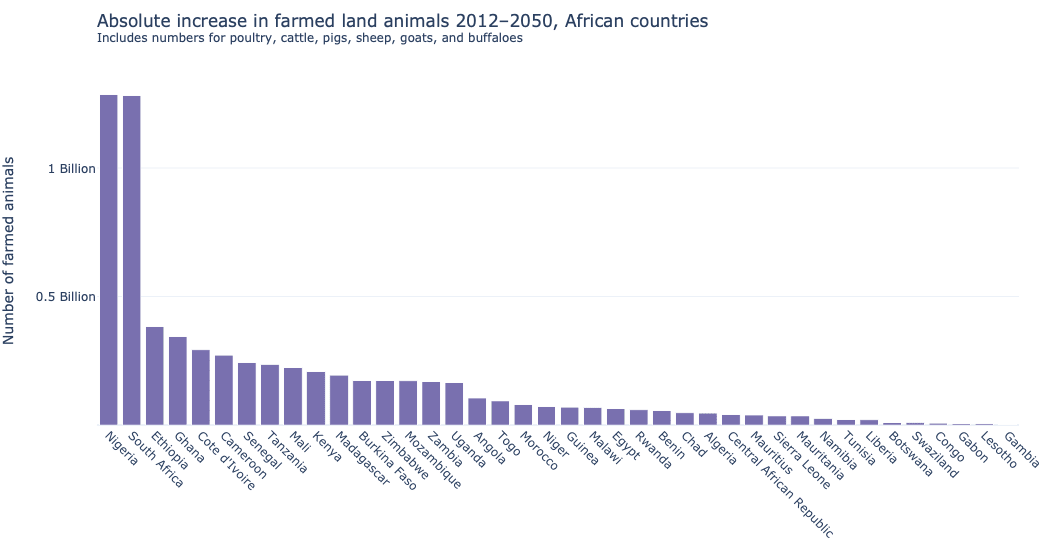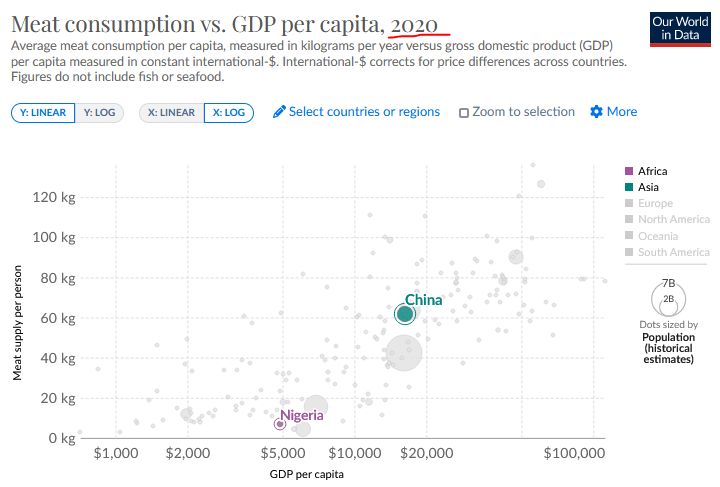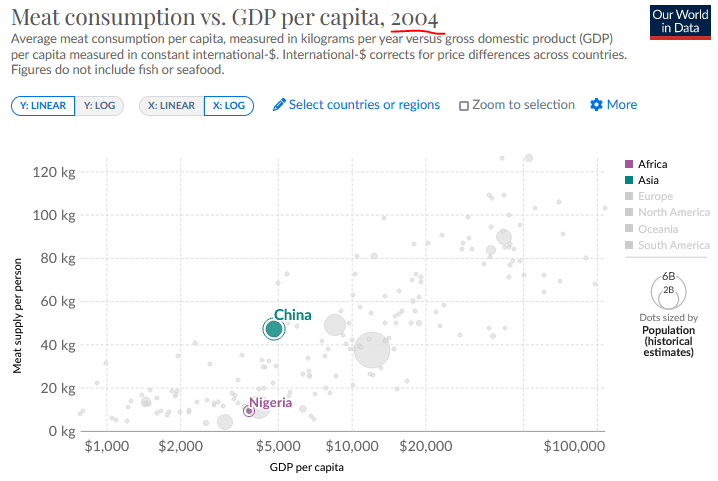AnimalAdvocacyAfrica
Posts 13
Comments6
Topic contributions3
Thank you for laying out these plans Karolina and for all the work you do!
We'd like to add to the following point:
There will likely be new promising organizations and projects coming out of incubators — estimated RFMF over the next 12 months: $500k
We're running a training programme that is very similar to Welfare Matters', just focused on Africa. We pivoted to this intervention last year based on our experience of working with early stage orgs / advocates that were in the process of starting their orgs - most importantly Daniel Abiliba / AWL and Paul Ssuna / AWeCCA who were both funded by the EA AWF as a result.
A few months ago, we completed the first cohort of our new programme - now focusing explicitly on individuals and incubation instead of existing orgs. This has been promising so far and we're about to start the second cohort next week. Since the start of this new programme, we've incubated three new projects/orgs:
- Policy advocacy for pre-slaughter stunning regulations in Ghana
- Research to understand the most important welfare issues for farmed fish in Uganda and piloting an intervention to address the most important issue in collaboration with farmers (website to be built)
- Policy advocacy for animal welfare standards for chickens and fish in Uganda
The first two received seed funding directly from us, totalling USD 53K. If their pilots turn out to be promising, we hope for these initiatives to successfully fundraise themselves - EA AWF would be a primary option for this. The third one received USD 27K in funding from EA AWF already for their pilot (not seed funded by us).
In addition to these projects, we'll likely soon incubate another project/org focused on cage-free campaigns in Zambia, the first one of its kind in the country, led by another one of our programme participants.
You and the fund managers will be the judge whether these projects/orgs are actually promising, but we wanted to flag this here, since:
- More projects will come out of our next cohort.
- The projects that we seed fund(ed) directly may go on to fundraise from EA AWF.
- EA AWF has so far funded all of the projects we've actively incubated and did not seed fund ourselves (n=3).
We're not talking about huge amounts here, since we typically advise our participants to start lean and costs are generally fairly low in Africa compared to other parts of the world. But we think there is potential to grow further in this area. We'll give a more detailed update in our 2024 review which we plan to publish on the forum in a few weeks.
Thank you for your comment. We appreciate critical questions and thoughts!
Of course, changes in farmed animal numbers might be quite different than projected. We are relying on projections from the FAO, since this is the only dataset we are aware of where animal numbers have been modelled globally until 2050. Needless to say, there are a lot of uncertainties and assumptions involved in such modelling. Precise numbers should thus be taken with caution. However, we think that the overall trend suggested by the data (i.e. Africa vs. other world regions) should be robust, as the African continent has the fastest-growing populations in the world and most countries are still early in their economic development (which is highly correlated with animal product consumption).
Thomas' comment also seems highly relevant, as there is still a lot of potential for crop yields to grow massively in many African countries. Hannah Ritchie also talked about this in depth on an 80K Hours podcast episode.
Thank you for your comment. Those are very relevant questions! They are also quite complex and hard to give a clear answer to. Some thoughts below.
- We have not conducted a detailed analysis on the trajectory of Nigeria vs. China. This seems like an interesting avenue for further research though, as Nigeria is one of the countries to watch out for. Quickly comparing meat consumption vs. GDP per capita over time via Our World in Data suggests that meat consumption per capita in Nigeria will be significantly lower than for China at comparable income levels. The two graphs below illustrate this. The first one shows the latest data (2020) for current meat consumption and GDP per capita. The second one shows data for 2004, when China had similar GDP/capita levels as Nigeria had in 2020. We can see that China's meat consumption levels were much higher than those of Nigeria at comparable income levels (40-50 kg vs. 5-10 kg per person). It thus seems unlikely that Nigeria will match China's meat consumption patterns. Of course, this is only a shallow analysis and should not be taken with much confidence. In any case, Nigeria is expected to see rapid increases in meat consumption over the next years and decades and should probably receive more attention from the animal advocacy community.
- Various scenarios are plausible and we are highly uncertain about how this will play out. Without any intervention, the most likely scenario seems that African countries would follow the same trajectories that other countries have followed as they developed economically. Our aim is to avoid this from happening or at least to mitigate the worst aspects of such developments. We are currently conducting a research project on which strategies and interventions seem most promising in this regard. In parallel, we will be running a training programme for advocates, some of which will hopefully go on to start new projects and initiatives aimed at slowing or halting the rise of factory farming in Africa.
Thank you for your comment. Very insightful to hear about your direct experience in Uganda and how animal production is changing "right before your eyes"!
This is exactly the kind of development we are concerned about and are trying to address. Just like you, we are very uncertain about the quality of animal lives under subsistence farming. But we do think that a shift towards factory farming would be a massive net harm for animals.
Of course, farmed animal numbers might rise even faster than shown in our analysis, as you suspect. We are relying on projections from the FAO, since this is the only dataset we are aware of where animal numbers have been modelled globally until 2050. Needless to say, there are a lot of uncertainties and assumptions involved in such modelling. Precise numbers should thus be taken with caution, but the overall trend suggested by the data (i.e. Africa vs. other world regions) should be robust.
Uganda is just outside of the top 25 countries globally when it comes to the absolute increase in farmed land animal numbers in our analysis. Please see the graph below for a deep-dive into all African countries.

We would also like to highlight the work of one of our partner organisations in Uganda: Animal Welfare Competence Center For Africa. Based on our strategic support and a research report produced in partnership with Animal Ask, they started a project on government outreach to stop or slow the growth of industrial animal agriculture in Uganda, funded by the EA Animal Welfare Fund.



Thanks Daniel and sorry for the delay in our reply!
I assume you mean our ICAP impact measurement? Or do you refer to something else?
I think ICAPs could be adapted to your circumstances, yes. We actually adopted them from AAC and Hive started using ICAPs as well. However, I would recommend you focus on measuring the most important parts of your ToC. For us, movement and capacity building is at the core of our mission, so we should measure outcomes and impact in this area. For you, it may be more important to focus on the different aspects of your cage-free work.
But if you do want to work on this, just reach out via email and I can answer some questions / share more info.
- Moritz